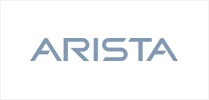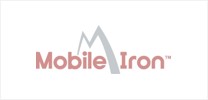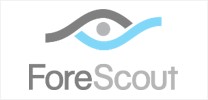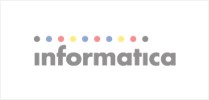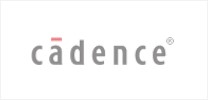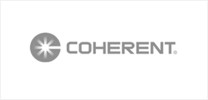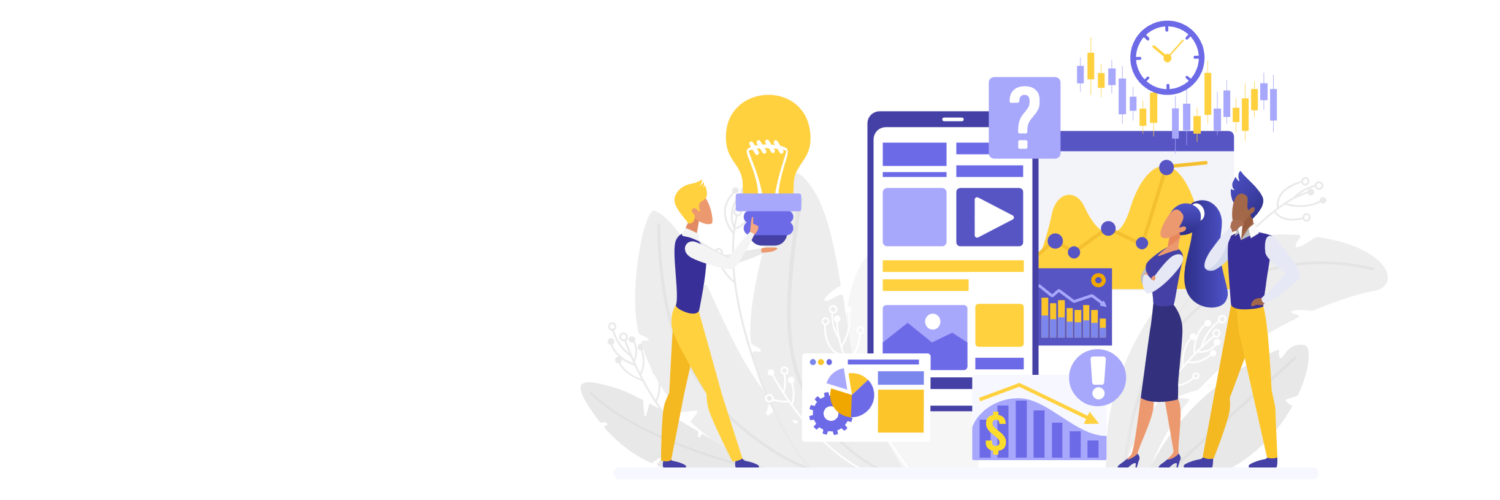As a SaaS CFO, you know the feeling: lying awake at night in a cold sweat wondering if that “one small accounting error” will have downstream effects. Maybe there was a payables mistake that impacted the timeliness of a payment to a key supplier. Will that put your company’s good standing with them at risk? And that’s just one example.
Finance leaders know the risks that can accompany even seemingly small accounting errors. You need to trust yourself, your team, and your tools.
In this blog post, we’ll explore why trust is critical when selecting automation tools for your business. We’ll be looking at the issue of trust from all angles as it applies to SaaS finance and automation. Why is it so vital that you trust these tools before switching to cloud accounting? There are answers to that question you likely haven’t even thought about.
Let’s get started.
From efficiency to trust: why you need to trust your tools
When selecting an AI accounting tool, CFOs’ main concern used to be about its impact on business efficiency. As time has passed, the core question has shifted somewhat to “Can I trust this product?”
Automation tools are crucial in streamlining financial processes and improving overall efficiency for SaaS companies. But that’s also what makes trust such an important factor when adopting these tools: they directly impact key processes tied to your business performance and cash flow.
And in SaaS finance, if something goes wrong, it can go very wrong. Whether you’re creating financial statements, running a forecast, setting a budget, or something else, a small slip can quickly trigger an avalanche of problems.
From the new accountant you just hired all the way up to your fellow accounting leaders, it’s safe to say that everyone in your department understands that.
There is no “small accounting mistake”
Even the slightest error in accounting can have far-reaching implications for your company’s ability to meet its financial goals.
This puts finance leaders in a double bind. Take your forecasting, for instance. You might know conceptually that email chains are far less efficient for forecast assembly than a centralized cloud-based platform. And you might even know that automated forecasts offer superior performance.
But here’s the thing: you don’t trust the idea of that cloud-based platform as much as your spreadsheets, or else you’d be using it right now.
This highlights two critical things:
- 1. The central role of trust in all of this. No reasonable CFO is going to offload essential financial processes to automation tools they don’t trust.
- 2. The importance of finding an AI solution you can trust. The cost of not finding one is to slowly (or not so slowly) lose market share to companies who weighed the risks, did their due diligence, and gave innovation an honest shot.
The good news is that accounting automation vendors also realize the importance of trust. And the reputable ones will bend over backward to observe several layers of meticulous trust-building practices. We examine some of them below.
Digital transformation with AI technology: the trust factor
A bit further in this post, we dive into a “vendor trust checklist” of what you should look for to maximize trust in your cloud software vendor.
In the meantime, though, here are some of the top things to look for when carrying out your due diligence. Following these tips can help you select software that keeps paying dividends for years to come:
- Check that the vendor maintains total transparency about their product development processes for AI tools.
- Make sure that their software still leaves you and your team in control: you guys still need to be the ones calling the shots. AI should be a trusted partner, not the boss of the operation.
- The software you select should be fully accessible, meaning you can trust that you can access it from anywhere with an internet connection.
- Your chosen solution should be fully auditable, providing a full audit trail of your financial processes and workflows.
If you can tick off all those boxes when doing your Google research on accounting AI solutions, you’re on the right track.
What are the benefits of using automation tools?
Using automation tools can streamline repetitive tasks for finance teams, improving accuracy and efficiency by reducing human error.
Accounting software equipped with AI helps CFOs and accountants save valuable time and financial resources while increasing productivity and ROI by eliminating data silos.
What else can cloud accounting do for you?
CFOs should prioritize automation tools–without leaping blindly
Software CFOs need to prioritize AI in order to maintain profitability and win their market. In today’s competitive SaaS landscape, manual accounting processes simply don’t make the cut any longer.
AI has grown in sophistication, and it’s now capable of helping SaaS CFOs improve their performance in all kinds of ways. Some particularly profitable use cases include:
- Long-range, low-variance forecasts: Forecasts built with ML algorithms can make more accurate predictions in the future than spreadsheet-based manual methods.
- Optimizing your billing strategy: SaaS subscribers, regardless of your target audience, will be heavily influenced by your pricing strategy.
- Making payables a breeze: Accounts payable (AP) can quickly grow hectic for SaaS companies. AP automation keeps your payables running smoothly, no matter how layered your vendor relationships become.
- Gauging user sentiment: AI software can use advanced analytics functionality to assess how your customers feel about your products.
- Improving your marketing funnel: With the help of cloud planning software, you can analyze funnel performance to identify and correct sticking points in your digital marketing, maximizing onboarding and cash flow.
Clearly, automation has a place in your department if you want to get ahead. But to avoid leaping blindly into a purchase, it’s important to be aware of the different types of software on the market and what they do.
Key automation tools for business transformation
Taking the time to understand your options will enable you to maximize your trust in your chosen AI solution.
So let’s take a moment and examine what’s available. Below are three of the main types of automation tools SaaS CFOs use today.
1. Accounting automation tools
Accounting automation tools are meant to help SaaS CFOs streamline a wide variety of financial processes involved in tracking and reporting on your company’s cash flow.
Examples of workflows that this type of software is meant to automate include:
- Financial reporting
- Tax Preparation
- SaaS metrics tracking
- Consolidation accounting
- Managing capitalization, both for public companies and smaller entities
Accounting automation tools also help finance teams with AP and payables processes for faster transactions, improving cash flow management through automated invoicing and collections.
2. FP&A automation tools
Financial planning and analysis (FP&A) automation tools are designed to help finance professionals boost the ROI of their financial strategizing.
FP&A automation software can help you:
- Use ML algorithms to create longer-range and lower-variance SaaS forecasts
- Make wise long-term budgeting allocations
- Pick the perfect SaaS pricing strategy for your company’s unique business goals
SaaS companies that operate on a subscription basis are beholden to unique accounting standards, and there’s also a type of software that can help you automate compliance.
3. SaaS tools for recurring revenue management
SaaS companies that operate on a subscription basis rather than one-off license sales have a unique set of financial realities to contend with.
Rather than just worrying about one-off transactions, recurring revenue companies need to manage an entire customer lifecycle for every single customer. In addition to GAAP, they’re also beholden to ASC 606, which calls for extremely specific revenue recognition protocols to be followed for every single customer relationship.
That’s a lot to stress over, and a lot can go wrong–which is where subscription automation tools come in. A recurring revenue management tool is a software solution meant to help SaaS businesses manage and optimize their subscriptions.
Accounting suites with subscription management functionality can:
- Automate billing and subscription management processes, such as automating renewals or helping a customer with a refund
- Ensure compliance with regulations in the United States and elsewhere
- Track churn and retention rates to measure and enhance customer loyalty
All three types of software are extremely useful in helping SaaS CFOs enhance different elements of their business performance and financial management. Sage Intacct is a full-service accounting automation solution that rolls all these products into one.
Now that you know more about the different types of automation tools on the market for SaaS CFOs, let’s see how you can maximize trust in your software vendor.
How to select the right automation software to maximize trust
When selecting an automation tool for your company’s finances, it’s only natural that you’ll want to maximize different layers of trust: trust in your vendor, their products, and the underlying processes and corporate culture that shapes those products.
It bears repeating. When you select an AI accounting suite, you’re trusting it to help you with extremely delicate and important financial workflows. One wrong move could seriously cost you.
So you need to do everything you can to make sure the trust factor is taken care of upfront. There should be no “mid-deployment jitters” if you’ve taken the time to carefully vet your vendor and their products.
Below is a checklist of things you should look for to ensure the trustworthiness of your chosen software vendor.
Vendor trust checklist
We realize that trusting your key financial workflows to AI isn’t easy. In fact, it probably goes against your basic instincts somewhat.
That’s why we’ve compiled this checklist of 7 essential things to look for to gauge the trustworthiness of your software vendor.
- Evaluate their reputation and track record in the industry. Look for reviews from users in your specific industry, and make sure they have specialized experience helping clients like you.
- Make sure the vendor complies with all applicable data security and privacy regulations.
- Pay close attention to the caliber of their customer support: support speed, quality of assistance, and frequency of support needs should be taken into account.
- Be sure that the software emphasizes putting you in control. Remember, AI is a partner, not a replacement. It’s very important that your vendor be on board with that.
- The company should be customer-centric. Do they actively take measures to get as much customer feedback as possible, helping inform their product development?
- Do they offer free product demos? This is an important low-risk way to gauge whether a solution is right for you.
- What level of deployment assistance and post-deployment help do they offer? This is a huge aspect of maximizing success with these tools.
Even if you trust AI, your team members and fellow stakeholders might not. How should you handle that?
Addressing common concerns about automation tools
Overcoming resistance to automation is crucial for successfully implementing cloud accounting in your department. These tools are extremely powerful, but employee resistance or hesitation can strain the learning process and slow down your success in the long run.
Dispelling misconceptions about automation tools helps to ensure widespread acceptance and utilization among employees. Most importantly, be sure to spend time addressing fears of job loss due to automation. Clearly communicate that the role of this technology is a complement, not a replacement.
Highlighting the benefits and opportunities of automation can inspire enthusiasm and buy-in, both for employees and other stakeholders. How can you help your team appreciate what’s really at stake?
Financial process automation: appreciating the stakes
Automation tools play a crucial role in streamlining complex financial workflows that frequently produce a lot of stress for accounting employees, and stakeholders all over your company as well.
This sets up the competing stakes that we mentioned earlier: the risks of adopting AI versus the risks of not adopting it.
You should clearly convey the risks involved in not using AI while giving equal emphasis to the rewards at stake for innovating with cloud-based tools. We’ll use SaaS budgeting as a brief example.
Setting quarterly and annual budgets for a software company is an intensely collaborative process. In a manual accounting department, the collaborative elements alone are a massive headache, and that’s before you even get to the dollars-and-cents complexities of budgeting.
Cloud accounting software, on the other hand, makes collaborative budgeting seamless. So instead of wading through email chains, you can spend time making profitable allocations for the months ahead. The cumulative benefits of that will quickly add up, and soon you’re likely to see a significant leap from your pre-automation performance.
That’s just one small example, but they’re everywhere in your department if you just take a moment to look for them.
At Sage, we know the value of trust
At Sage, trust is the cornerstone of our business. We fully understand the level of trust it takes to allow AI to assist you with your crucial financial processes. We know exactly what’s at stake for your company, which is why we do everything in our power to develop products you can place your trust in.
Below are some practices and commitments that help us produce world-class cloud accounting products.
We have customer advisory councils comprised of clients.
This allows us to maintain an ongoing pipeline of real-time feedback about how our products are helping clients just like you.
Sage works extensively with AI auditing teams.
Our commitment to extensive AI auditing helps ensure that our products are free of bias and that our product development practices meet the highest possible standard.
We maintain an international employee advisory council.
Our employee advisory council is made up of Sage employees all over the world and provides a crucial counterpoint to our customer advisory council.
Together, they help us maximize our internal and external communication to stay informed and deliver superior value to our customers.
Our commitment to trust ensures that our customers can rely on us to deliver automation tools that live up to even the most complex accounting situations.
Embrace automation with tools you can trust
There’s a lot at stake when you decide to switch to automation accounting at your company. But there’s just as much risk, and arguably more, in sitting on the sidelines while your competitors adopt these tools and get ahead.
To see how AI can streamline your department, check out our infographic explaining how AP automation streamlines SaaS finance.

